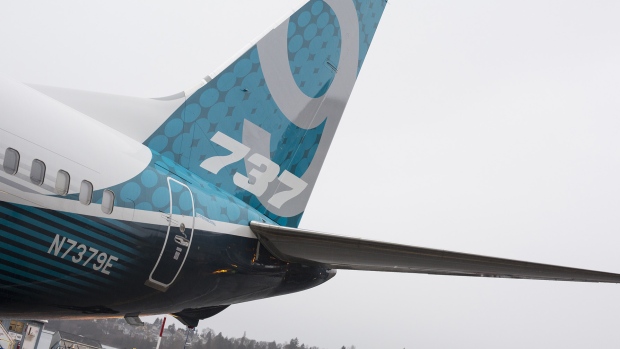May 20, 2019
Boeing Max could stay grounded in Indonesia beyond this year
, Bloomberg News

Indonesia signaled it may ground Boeing Co.'s 737 Max until next year as the regulator remains wary about a plane that crashed twice and killed nearly 350 people.
Even after the U.S. Federal Aviation Administration clears the plane to return to service, Indonesia will make its own determination based on its review of the proposed fixes, Director General of Civil Aviation Polana Pramesti said in an interview in Jakarta on Monday. Pilots will also have to undergo more stringent mandatory training than in the past before they are allowed to fly the jet, she said.
All in all, there are "lots of issues" and it's unclear whether the plane will be able to fly in Indonesia this year, she said. "I can’t predict whether we will keep using the aircraft.”
The comments underscore how far Boeing has to go before its fastest-selling plane returns to the skies globally, even as the biggest U.S. exporter finalizes an update to a software system implicated in both crashes. The chief executive officer of Southwest Airlines Co., the largest operator of the Max, said last week he was hopeful the jet could come back to service this summer.
A Boeing representative didn't immediately respond to a request for comment.
Though Indonesia isn't as large as China or Europe, Southeast Asia's biggest economy is still a key regional aviation market as the government is planning the construction of 25 airports as part of an ambitious proposal for more than $400 billion in building projects over the next five years.
But there's more to why Indonesia has a big say when it comes to Boeing's infamous plane. Two of the country's carriers are among the biggest customers of the aircraft and Lion Air Flight 610, which killed all 189 people on board, was the first Max to crash when it plunged into waters off Indonesia in late October.
Less than five months later, a second Max crashed in Ethiopia, triggering a global grounding of the plane and investigations into how the aircraft was approved to fly.
“Boeing has to assure us, the regulators, that the aircraft is safe," said Pramesti, the first woman to head Indonesia’s civil aviation authority. "They also have to regain confidence from the pilots and the airlines, then educate the Indonesian customers."
Boeing Probe
Though pilots who had flown the previous 737 model used to be able to fly the newer Max by completing a course on an iPad for an hour or two, that's not going to cut it now, according to Pramesti. Pilots in Indonesia will have to go through more stringent training, including a requirement to train in sophisticated flight simulators, she said.
Pramesti may join her staff to a meeting in Texas this week, where the FAA is hosting foreign counterparts to discuss the steps needed to get the Max airborne again.
Meanwhile, Boeing is battling to restore confidence among its customers, particularly in Indonesia. State-owned PT Garuda Indonesia has said it's seeking to convert its US$4.8 billion order for 49 Boeing 737 Max 8 jets to other models due to concerns its customers no longer want to fly in the aircraft. The co-founder of privately-owned PT Lion Mentari Airlines has said he wants to cancel US$22 billion in orders for the aircraft because of what he says is Boeing’s unfair reaction to the October crash.
In the U.S., the FAA has come under fire for approving a Boeing feature known as the Maneuvering Characteristics Augmentation System, or MCAS, and for giving the Chicago-based planemaker too much authority to oversee itself.
After a sensor on both the doomed 737 Max jets malfunctioned, MCAS continually pushed down the aircraft’s nose until pilots lost control. Boeing is redesigning the system to make it less prone to operate in error. The FAA may receive the proposed software fix for the grounded 737 Max as soon as this week


